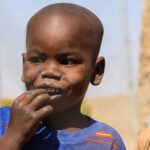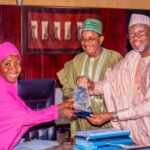After several deliberations spanning many weeks, schools in many states in Nigeria finally resumed on January 18, 2021. However, following resumption in Lagos, the Lagos State Government announced that about 24,000 students were yet to resume. While there are varying reasons for this high level of absence, the figures have brought up the conversation on the impact that the pandemic and subsequently lockdown and closure of schools would have on the literacy levels in the country.
While the quality of education in higher institutions has been questionable, literacy level has nevertheless in general steadily risen by 10.9 per cent to 62.02 per cent between 2008 and 2018. Even though the number of students yet to resume may simply be as a result of parents being uncomfortable with sending their children to school during the pandemic or the fact that a number of students always resume a week or two late normally, the pandemic, lockdown and school closure that followed may have a more serious impact on education in the country than it is obvious right now.
- NEMA distributes relief materials to flood victims in Delta
- Ohaneze youth donate office to police in Bayelsa
One of the most common speculations on why students are yet to resume is the inability of parents to afford tuition fees and other school dues and expenses. The economy has been greatly hit by the pandemic and with so many businesses closed down, jobs lost and another economic recession, Nigeria’s fight against poverty has taken a great hit. It is worthy of note that increased poverty is a threat to literacy in the country.
There has also been an increased lack of confidence in education. Schools have been closed for various months and the sustenance of good quality is in question. With the rising unemployment, ASUU strike and deplorable state of higher education in the country, low-income parents who had been cajoled into sending their children to school can no longer see the benefits of doing so especially as some of the children may have started earning money or contributing more to the family business and living.
Like many other sectors, the pandemic has also provoked a need to change in the education system, and recovering from this blow would also need a change of approach. Firmly inculcating vocational studies into the education system would also be helpful. In Nigeria, even though many students are familiar with artisanal practices they are seen as subpar to traditional classroom education and have presented little flexibility for students who try to do both. Adjusting school curriculums to accommodate this form of mixed learning will make it easier for students who are under apprenticeship at local artisans or at their parent’s businesses to combine both and help balance out the insecurity around formal education.
Private organisations are capable of innovating and improvising solutions in order to adapt to situations. A less rigid education system, which encourages less streamlined activities and ideas will encourage schools and other organisations to move beyond the current boundaries and create more effective systems.
It is too early to tell how much impact this crisis has had on the literacy projects. However, there is no doubt that it has greatly affected it even though the results may not be evident now. Understandably, this is not the first thing on everyone’s minds but how badly the pandemic would affect the literacy levels in the country depends on what we do now to salvage the situation.
Ogechukwu Egwuatu is a writing fellow at African Liberty
 Join Daily Trust WhatsApp Community For Quick Access To News and Happenings Around You.
Join Daily Trust WhatsApp Community For Quick Access To News and Happenings Around You.


